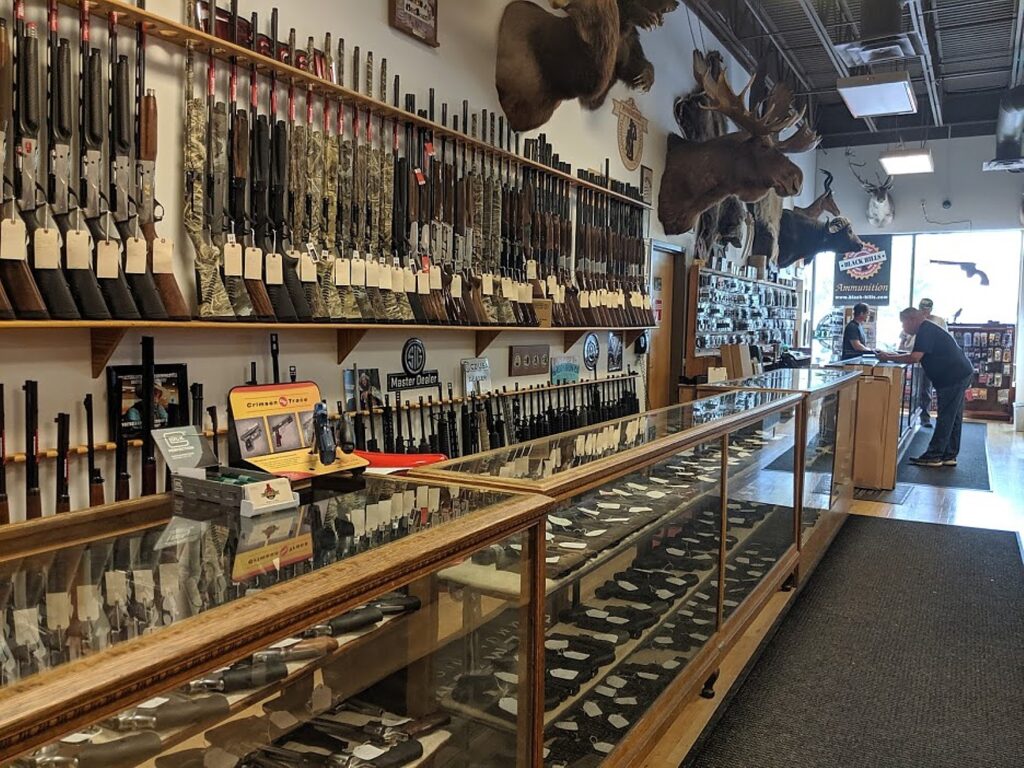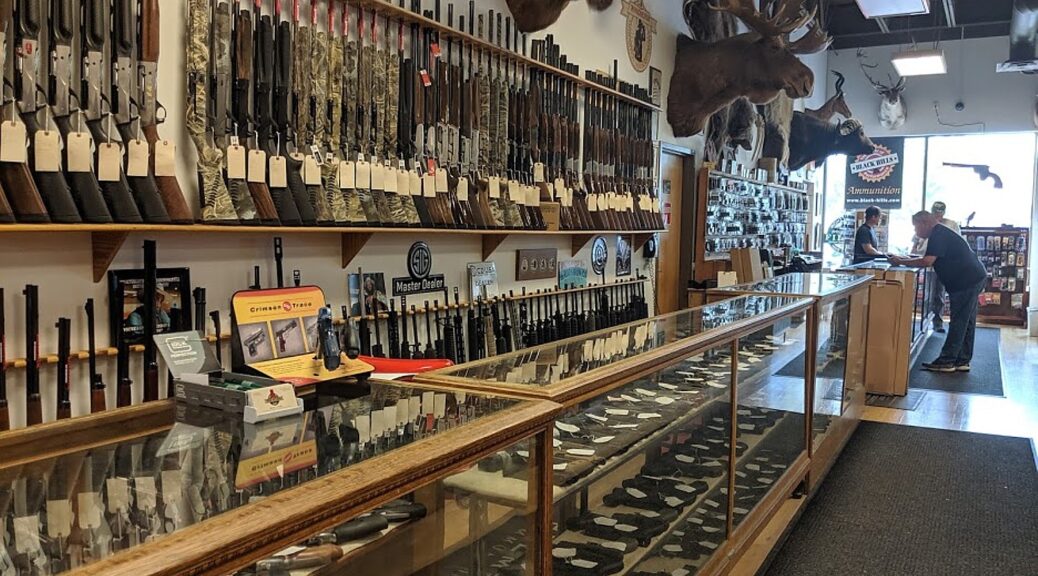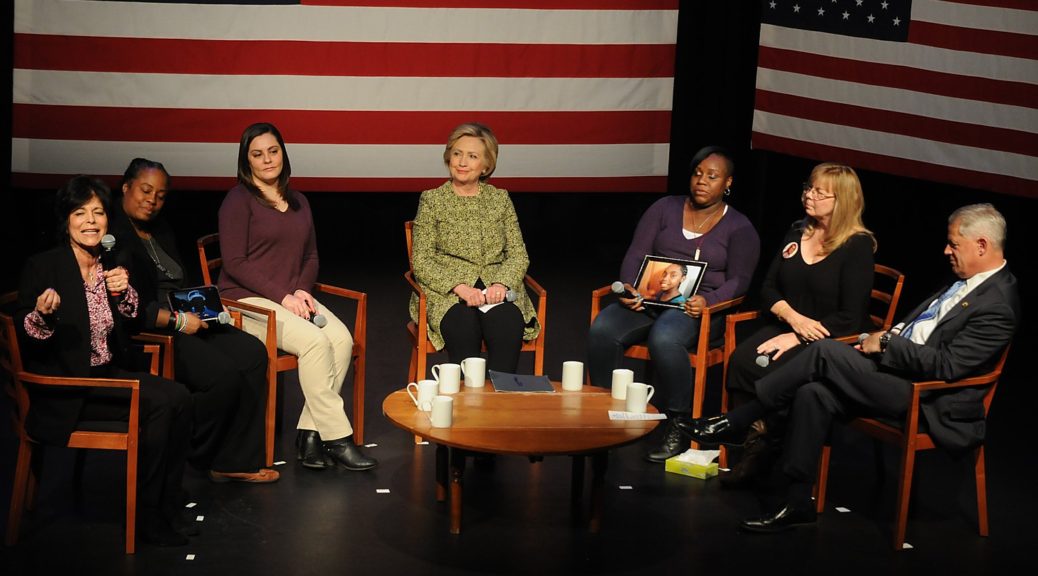
Today, in Monterey Park, California, President Biden announced an Executive Order with the goal of increasing the number of background checks conducted before firearm sales, moving the U.S. as close to universal background checks as possible without additional legislation. The Executive Order will also keep more guns out of dangerous hands by increasing the effective use of “red flag” laws, strengthen efforts to hold the gun industry accountable, and accelerate law enforcement efforts to identify and apprehend the shooters menacing our communities. President Biden is also encouraging the Federal Trade Commission to issue a public report analyzing how gun manufacturers market firearms to minors.
President Biden traveled to Monterey Park to grieve with the families and community impacted by the mass shooting that claimed 11 lives and injured nine others in January. Monterey Park is part of a growing list of communities all across the country that are forever changed due to gun violence—not only mass shootings, but also daily acts of gun violence that may not make national headlines.
Last year, President Biden signed into the law the Bipartisan Safer Communities Act, the most significant gun violence reduction legislation enacted in nearly 30 years. When celebrating the Act’s passage, he called on Congress to seize the bipartisan momentum and advance additional commonsense steps to reduce gun violence. Again and again, he has called for Congress to act, including by banning assault weapons and high-capacity magazines, requiring background checks for all gun sales, requiring safe storage of firearms, closing the dating violence restraining order loophole, and repealing gun manufacturers’ immunity from liability.
As he continues to call on Congress to act, President Biden will do everything he can to reduce gun violence and save lives. That is why, over the past two years, President Biden has taken more executive action to reduce gun violence than any other president at this point in their presidency.
The President’s new Executive Order to reduce gun violence includes the following additional actions, all of which fall within existing executive authority and outside of the right protected by the Second Amendment:
Keeping guns out of dangerous hands
The Executive Order directs the President’s Cabinet to:
- Increase the number of background checks by ensuring that all background checks required by law are conducted before firearm purchases, moving the U.S. as close to universal background checks as possible without additional legislation. A large majority of Americans support background checks and agree it’s common sense to check whether someone is a felon or domestic abuser before allowing them to buy a gun. The President will continue to call on Congress to pass universal background check legislation. In the meantime, he is directing the Attorney General to do everything he can to ensure that firearms sellers who do not realize they are required to run background checks under existing law, or who are willfully violating existing law, become compliant with background check requirements. Specifically, the President is directing the Attorney General to move the U.S. as close to universal background checks as possible without additional legislation by clarifying, as appropriate, the statutory definition of who is “engaged in the business” of dealing in firearms, as updated by the Bipartisan Safer Communities Act. This move would mean fewer guns will be sold without background checks, and therefore fewer guns will end up in the hands of felons and domestic abusers. The President is also directing the Attorney General to develop and implement a plan to prevent former federally licensed firearms dealers, whose licenses have been revoked or surrendered, from continuing to engage in the business of dealing in firearms.
- Improve public awareness and increase appropriate use of extreme risk protection (“red flag”) orders and safe storage of firearms. 19 states and the District of Columbia have enacted red flag laws, allowing trusted community members to petition a court to determine whether an individual is dangerous, and then to temporarily remove an individual’s access to firearms. However, these laws are only effective if the public knows when and how to use red flag orders. President Biden is directing members of his Cabinet to encourage effective use of extreme risk protection orders, including by partnering with law enforcement, health care providers, educators, and other community leaders. In addition, President Biden is directing members of his Cabinet to expand existing federal campaigns and other efforts to promote safe storage of firearms.
- Address the loss or theft of firearms during shipping. Bureau of Alcohol, Tobacco, Firearms and Explosives (ATF) data indicates an over 250% increase in the number of firearms reported as lost or stolen during shipment between federally licensed firearms dealers, from roughly 1,700 in 2018 to more than 6,100 in 2022. President Biden is directing the Secretary of Transportation, in consultation with the Department of Justice, to work to reduce the loss or theft of firearms during shipment and to improve reporting of such losses or thefts, including by engaging with carriers and shippers.
Holding the gun industry accountable
The Executive Order directs the President’s Cabinet to:
- Provide the public and policymakers with more information regarding federally licensed firearms dealers who are violating the law. Gun dealers violating federal law put us all at risk by increasing the likelihood that firearms will fall into dangerous hands. The President is directing the Attorney General to publicly release, to the fullest extent permissible by law, ATF records from the inspection of firearms dealers cited for violation of federal firearm laws. This information will empower the public and policymakers to better understand the problem, and then improve our laws to hold rogue gun dealers accountable.
- Use the Department of Defense’s acquisition of firearms to further firearm and public safety practices. The Department of Defense buys a large number of firearms and other weapons to protect and serve our country. The President is directing the Secretary of Defense to develop and implement principles to further firearm and public safety practices through Department of Defense acquisition of firearms, consistent with applicable law.
President Biden is also encouraging the independent Federal Trade Commission (FTC) to issue a public report analyzing how gun manufacturers market firearms to minors and how such manufacturers market firearms to all civilians, including through the use of military imagery.
Additional steps to make our communities safer and support communities impacted by gun violence
The Executive Order will direct the President’s Cabinet to:
- Help catch shooters by accelerating federal law enforcement’s reporting of ballistics data. The National Integrated Ballistics Information Network (NIBIN) allows federal, state, and local law enforcement to match fired cartridge casings to the guns from which they were fired, making it easier for law enforcement to connect multiple crime scenes and catch shooters. In order to maximize NIBIN’s effectiveness, federal, state, and local law enforcement all have an important role to play in ensuring timely submission of ballistics data to NIBIN. Today, the President is directing all federal law enforcement agencies to issue rigorous requirements regarding NIBIN data submission and use of this tool.
- Accelerate and intensify implementation of the Bipartisan Safer Communities Act (BSCA). BSCA is the most significant gun safety legislative accomplishment in nearly 30 years, and the Biden-Harris Administration is treating it as such by making the most of every opportunity it provides to reduce gun violence. President Biden is directing each agency responsible for the law’s implementation to send a report to him, within 60 days, on progress toward full implementation of BSCA and additional steps they will take to maximize the benefits of the law, including by increasing public awareness and use of the resources made available by BSCA.
- Improve federal support for gun violence survivors, victims and survivors’ families, first responders to gun violence, and communities affected by gun violence. When a hurricane overwhelms a community, the Federal Emergency Management Agency (FEMA) coordinates federal, state, local, and non-profit organizations in order to assess and meet community needs. However, when a mass shooting overwhelms a community, no coordinated U.S. government mechanism exists to meet short- and long-term needs, such as mental health care for grief and trauma, financial assistance (for example, when a family loses the sole breadwinner or when a small business is shut down due to a lengthy shooting investigation), and food (for example, when the Buffalo shooting closed down the only grocery store in the neighborhood). The President is directing members of his Cabinet to develop a proposal for how the federal government can better support communities after a mass shooting, and identify what additional resources or authorities the executive branch would need from Congress to implement this proposal.
- Advance congressional efforts to prevent the proliferation of firearms undetectable by metal detectors. In recent years, we’ve seen the rise of technology that allows guns to be made with polymers and other materials that are increasingly capable of avoiding detection by metal detectors. President Biden is directing the Attorney General to help Congress modernize and make permanent the Undetectable Firearms Act of 1988, which is currently set to expire in December 2023.
New York State Governor Kathy Hochul, who had to rejigger 100-year old gun regulation law after the radical rightwing majority on the Supreme Court overturned the law, commented, “Too many families in this country have experienced loss due to gun violence. Too many communities, including my hometown of Buffalo, have been devastated by weapons of war. We have a moral obligation to act — and that’s why New York strengthened our nation-leading gun safety laws, expanding the use of red flag laws to prevent domestic abusers and other dangerous individuals from causing harm to themselves or others.
“President Biden’s new Executive Order brings New York’s approach to a national scale. The Executive Order strengthens rules around individuals with a “red flag” by requiring federally licensed gun dealers to check if an individual is a domestic abuser or convicted felon. It increases federal resources for proven crime-fighting tools, like the National Integrated Ballistics Information Network we are utilizing in Crime Analysis Centers across New York. This EO builds on the major success last year, when President Biden worked closely with Leader Schumer and bipartisan members of Congress to pass the first new gun safety legislation in a generation. This Executive Order is the significant next step our country needed.”



